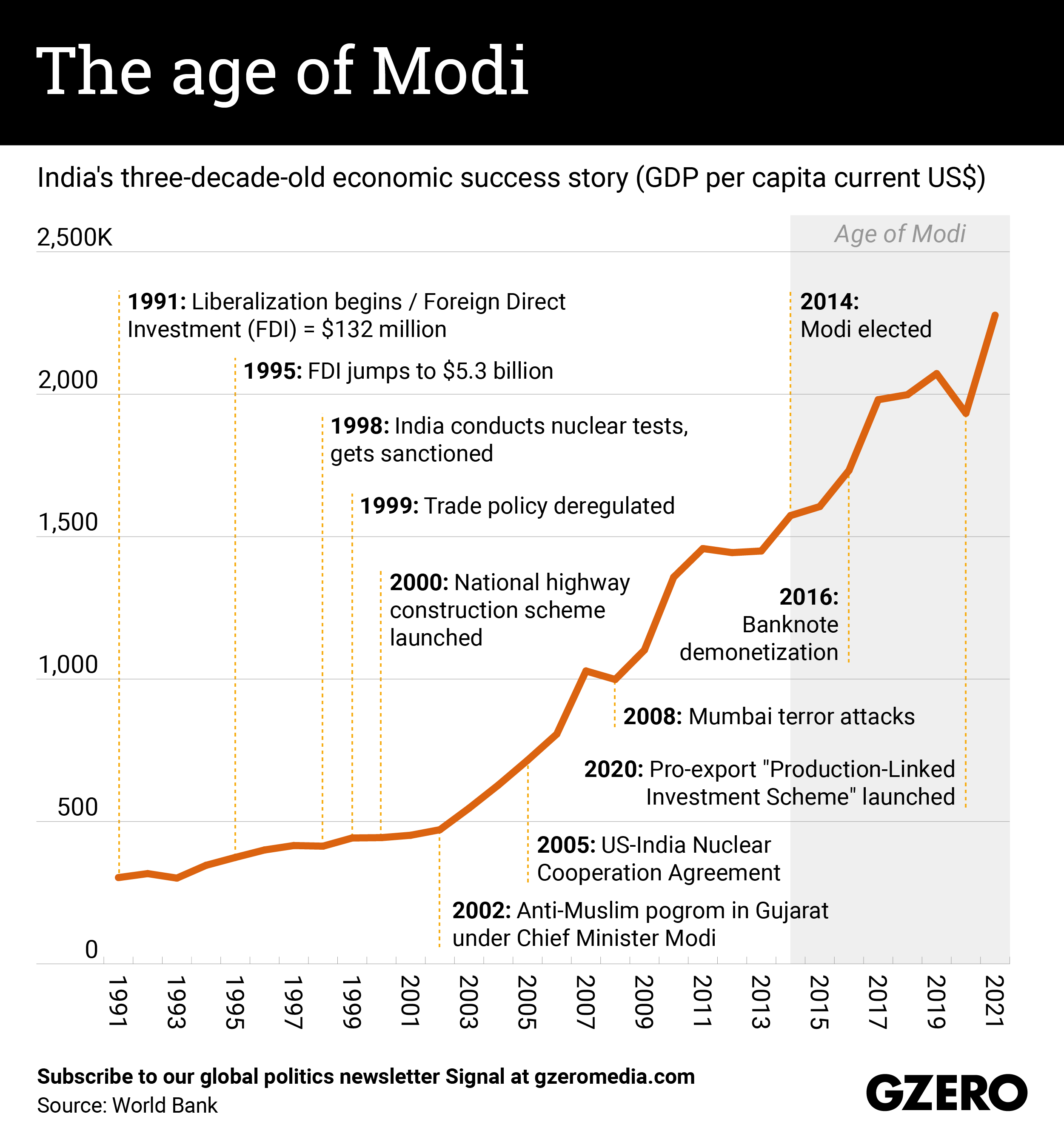December 11, 2022
India, now the fastest-growing major economy on the planet, is expected to become the world’s third-largest by 2027. But this wasn’t always the case. After independence in 1948, India’s closed markets and notoriously red-taped “License Raj” kept growth and foreign investment at bay until financial reforms were passed in 1991. From thereon, growth has accelerated. Despite a change of hands between the two major parties — the Congress and the BJP — financial and market reforms have continued consistently without any significant rollbacks. Today, PM Narendra Modi continues previously planned policies of privatization and digitization, with an emphasis on export incentives, to keep driving the Indian economy moving forward. The lesson? Consistency is key. We explore the big milestones and hiccups in the last 30 years of Indian economic growth.
More For You
- YouTube
In this episode of GZERO Europe, Carl Bildt examines how an eventful week in Davos further strained transatlantic relations and reignited tensions over Greenland.
Most Popular
- YouTube
In this Quick Take, Ian Bremmer addresses the killing of Alex Pretti at a protest in Minneapolis, calling it “a tipping point” in America’s increasingly volatile politics.
Two Iranian motorcyclists stop in front of the burned East Tehran General Directorate of Tax Affairs headquarters in Tehran, Iran, on January 21, 2026.
Photo by Morteza Nikoubazl/NurPhoto
30,000: The estimated death toll in Iran during the protests at the start of the year, per local health officials, underscoring the scale of the Islamic Republic’s crackdown on its own citizens.
© 2025 GZERO Media. All Rights Reserved | A Eurasia Group media company.
